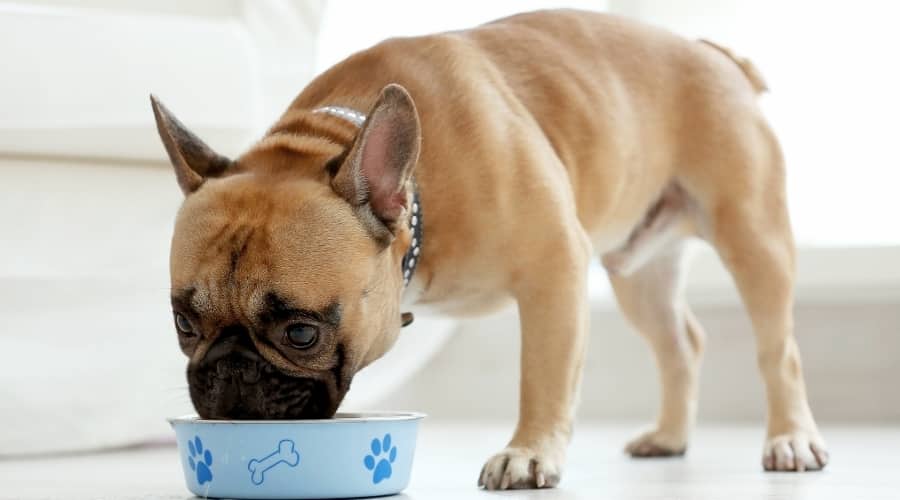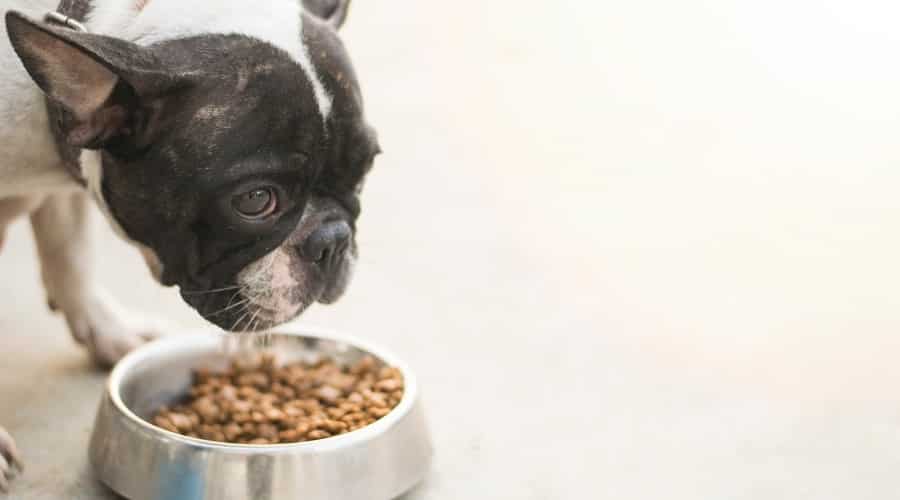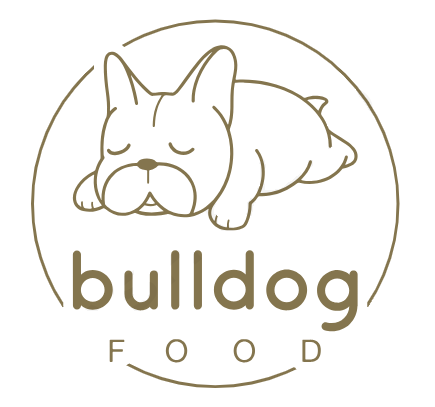
Introduction to French bulldog feeding chart by weight age
Understanding french bulldog feeding chart by weight age is crucial to ensuring their well-being at every stage of life. From puppyhood through their senior years, a tailored feeding plan based on their weight and age not only supports their growth and development but also helps prevent health issues. Here’s a comprehensive guide to the French Bulldog feeding chart by weight and age, designed to help you navigate their nutritional needs effectively. Discover how to keep your beloved Frenchie healthy and happy with the right diet regimen.
Lifespan Stages and Weight of French Bulldogs

Here’s the weight chart for different stages of French Bulldog development:
| Age Stage | Average Weight |
| 2 months | about 2-4 kg (4.4-8.8 lbs) |
| 3 months | about 3-5 kg (6.6-11 lbs) |
| 4 months | about 4-6 kg (8.8-13.2 lbs) |
| 6 months | about 6-9 kg (13.2-19.8 lbs) |
| 9 months | about 7-10 kg (15.4-22 lbs) |
| 12 months | about 8-12 kg (17.6-26.4 lbs) |
| Adult (1-7 years) | about 9-14 kg (19.8-30.8 lbs) |
| Senior (7+ years) | may experience natural weight loss or gain |
Please note that these are average weights and actual weights can vary based on individual dogs. Monitoring and adjusting their diet appropriately is crucial for maintaining ideal health and weight for your French Bulldog.
French bulldog feeding chart by weight age

Proper feeding schedules and quantities are crucial for the healthy development of French Bulldog puppies. Below is a detailed feeding chart for each week during the puppy stage, outlining the recommended food quantity based on their weight.
| Age | Type of Food | Amount per Day | Meals per Day |
| 1-2 weeks | Mother’s milk | Unlimited | Unlimited |
| 3 weeks | Mother’s milk | Unlimited | Unlimited |
| 4 weeks | Mother’s milk and mush | 1/4 cup mush | 6 |
| 5 weeks | Puppy food | 1/2 – 1 cup | 4 – 6 |
| 6 weeks | Puppy food | 1 cup | 4 |
| 7 weeks | Puppy food | 1 cup | 4 |
| 8 weeks | Puppy food | 1 1/2 cups | 4 |
| 9 weeks | Puppy food | 1 1/2 cups | 3 – 4 |
| 10 weeks | Puppy food | 1 1/2 cups | 3 |
| 11 weeks | Puppy food | 1 1/2 cups | 3 |
| 12 weeks | Puppy food | 1 1/2 cups | 3 |
| 6 months | Puppy food | 2 cups | 2 – 3 |
| 9 months | Puppy food / Adult food | 2 – 2 1/2 cups | 2 |
| 1 year | Adult food | 2 – 3 cups | 2 |
| Adult | Adult food | 2 – 3 cups | 2 |
| Senior | Adult food | 2 – 3 cups | 2 |
By following these guidelines and adjusting based on individual puppy needs and growth rates, owners can ensure their French Bulldog puppies receive all necessary nutrients during these critical early weeks of development.
Benefits of Providing Proper Nutrition
- Improves Health and Development: Proper nutrition supports healthy growth, strong bones, and a robust immune system.
- Reduces the Risk of Diseases: A balanced diet can prevent many common health issues, such as obesity, diabetes, and heart disease.
Important Notes When Feeding French Bulldogs
- Always Have Clean Water Available: Ensure your French Bulldog has access to fresh, clean water at all times.
- Monitor Your Dog’s Growth and Health: Regularly check your dog’s weight and overall health to adjust their food intake as needed.
Tips and Tricks from the Experts

- Listen to Your Vet: Always consult with your veterinarian before making any significant changes to your French Bulldog’s diet. They can provide personalized recommendations based on your dog’s health and development.
- Choose High-Quality Food: Invest in best food for french bulldog that meets the nutritional requirements of French Bulldogs. Avoid foods with fillers and artificial additives.
- Stick to a Routine: Keep a consistent feeding schedule. This aids in digestion and helps manage your dog’s weight.
- Portion Control: Measure your dog’s food portions carefully to avoid overfeeding. Use the feeding recommendations on the dog food packaging as a starting point and adjust as necessary.
- Monitor for Allergies: Be observant of any allergic reactions to certain foods, such as itching, stomach upset, or changes in stool. Consult your veterinarian if you notice any issues.
- Treats in Moderation: While treats can be useful for training, they should not make up more than 10% of your dog’s daily caloric intake. Choose healthy, low-calorie options.
Ensuring your French Bulldog receives proper nutrition is key to their overall well-being and longevity. By following these guidelines and tips, you can help your furry friend stay healthy and happy.
FAQs
Q : How much should I feed my French Bulldog puppy daily?
A: The amount of food your French Bulldog puppy needs can vary depending on their age and weight. Refer to the feeding guidelines provided earlier in this document, and consult your veterinarian for personalized advice.
Q : When do French Bulldogs go into heat?
A : Female French Bulldogs typically go into heat, or estrus, for the first time between the ages of 6 to 12 months. This age can vary depending on individual development and genetics. If you’re wondering when do french bulldogs go into heat, it’s important to note that they usually have their first heat cycle relatively early compared to larger breeds.
Q : What should I do if my French Bulldog shows signs of food allergies?
A: If you notice symptoms such as itching, stomach upset, or changes in stool, consult your veterinarian. They may recommend an elimination diet or hypoallergenic food.
Q : Can I feed my French Bulldog human food?
A: It’s generally best to avoid feeding your French Bulldog human food, as some foods can be toxic to dogs. Always check with your veterinarian before offering any human food.
Q : Why are French Bulldogs so expensive?
A: French Bulldogs are often expensive due to their popularity, which drives up demand. Additionally, their unique physical characteristics, such as their distinctive bat ears and compact size, contribute to their high price tag. Moreover, factors like breeding costs, health considerations, and availability can further influence why are french bulldogs so expensive
Conclusion
In conclusion, understanding and implementing the french bulldog feeding chart by weight age is essential for promoting the health and longevity of your beloved Frenchie. By providing them with the right balance of nutrition tailored to their specific needs at different life stages, you can ensure they maintain a healthy weight, optimal growth, and overall well-being. Remember to consult with your veterinarian for personalized advice and adjustments based on your French Bulldog’s individual requirements. With proper nutrition, your Frenchie can thrive and enjoy a vibrant life by your side. Explore the French Bulldog feeding chart by weight and age to give them the best care possible.

At bestfoodforfrenchbulldog.net, Frenchie Feast Co is dedicated to providing the best information and advice on nutrition and food for French Bulldogs. We understand that every dog has unique nutritional needs, especially breeds like the French Bulldog. Therefore, we continually research and seek out optimal nutritional solutions.
CEO Lincoln Martin is not only the founder of BestDogFoodForDachshunds.net but also a proud Dachshund parent. With a deep understanding of the unique dietary needs of Dachshunds, Lincoln Martin is committed to helping fellow dog owners make informed decisions about their pets’ nutrition.
Driven by a love for animals and a desire to share valuable insights, our team works tirelessly to research and curate the most reliable and up-to-date information on dog food, health, and care. From reviewing the latest products to offering practical tips and advice, we strive to be your trusted source for everything Dachshund-related.
Whether you’re a new Dachshund owner or a seasoned enthusiast, you can trust the expertise and dedication of the team at BestDogFoodForDachshunds.net to support you on your journey of providing the best care for your furry friend.
